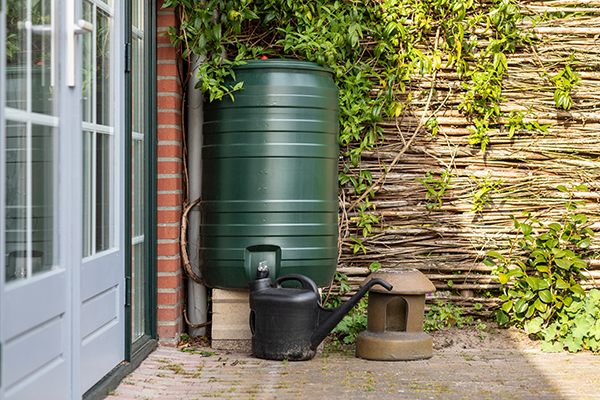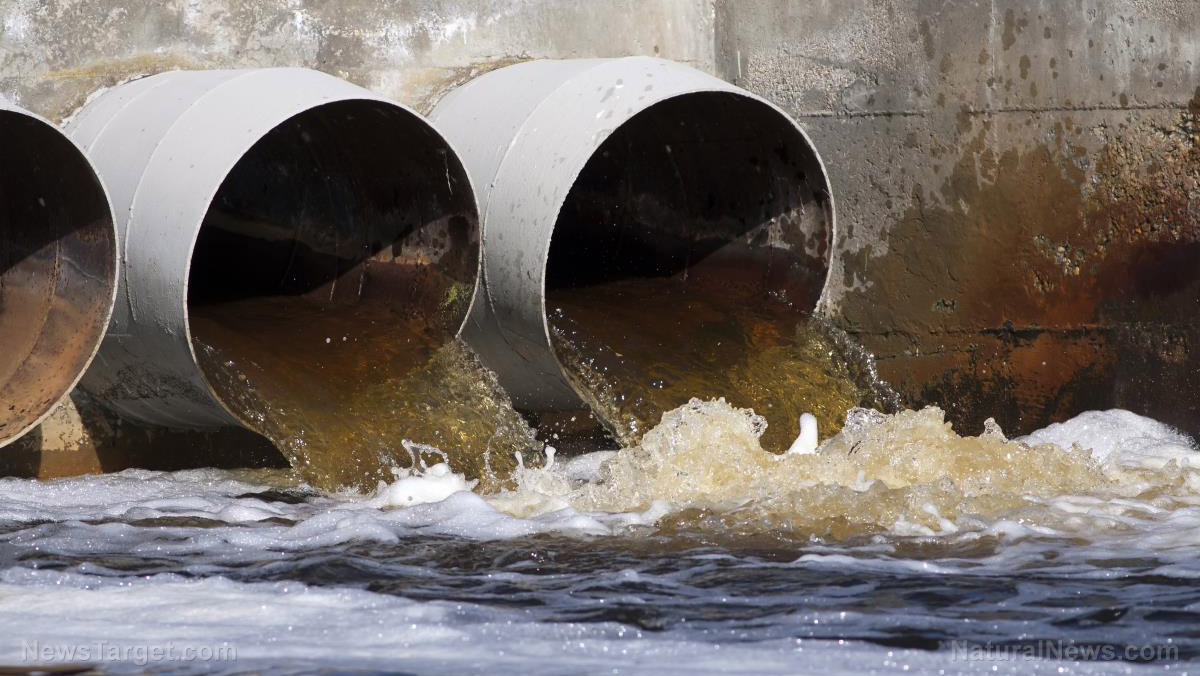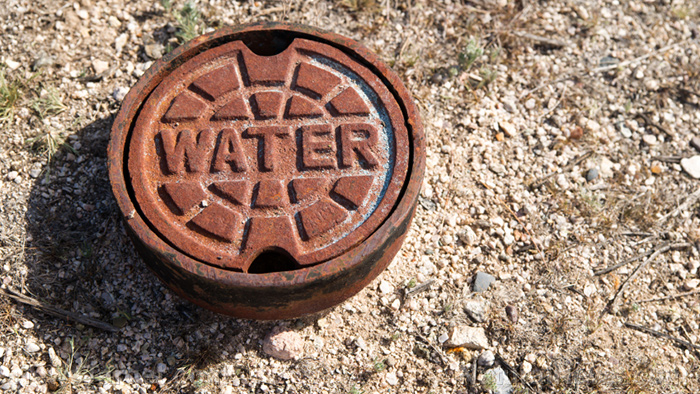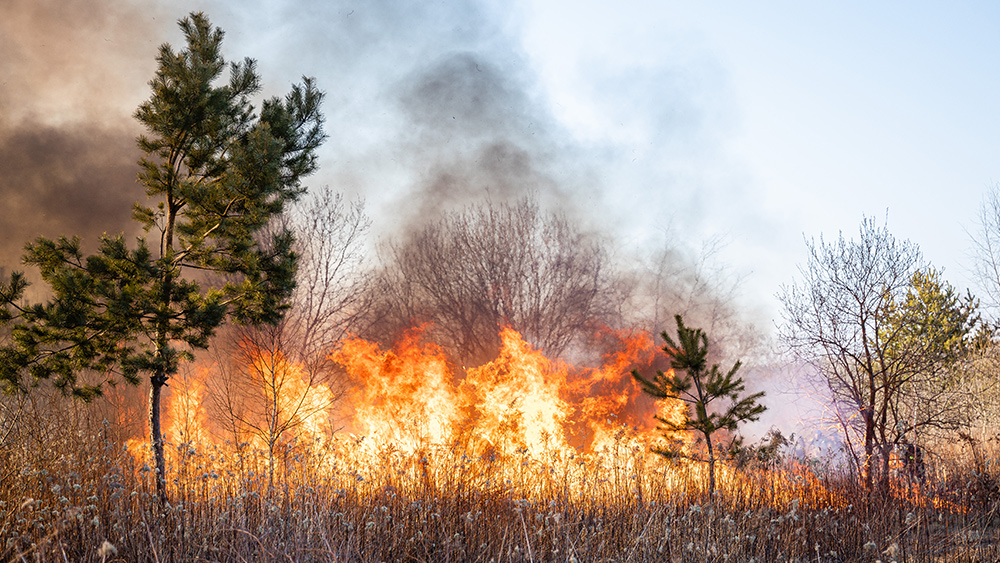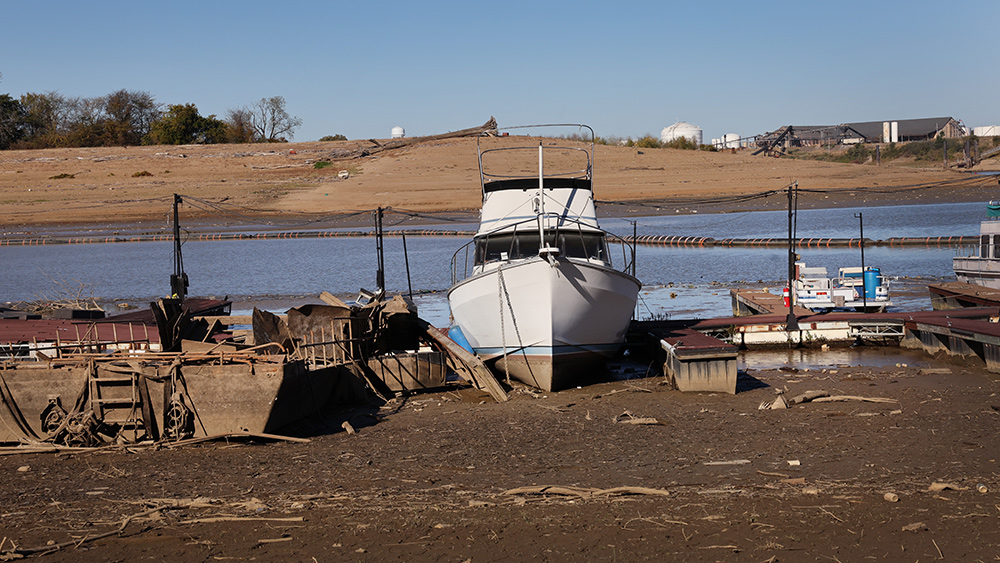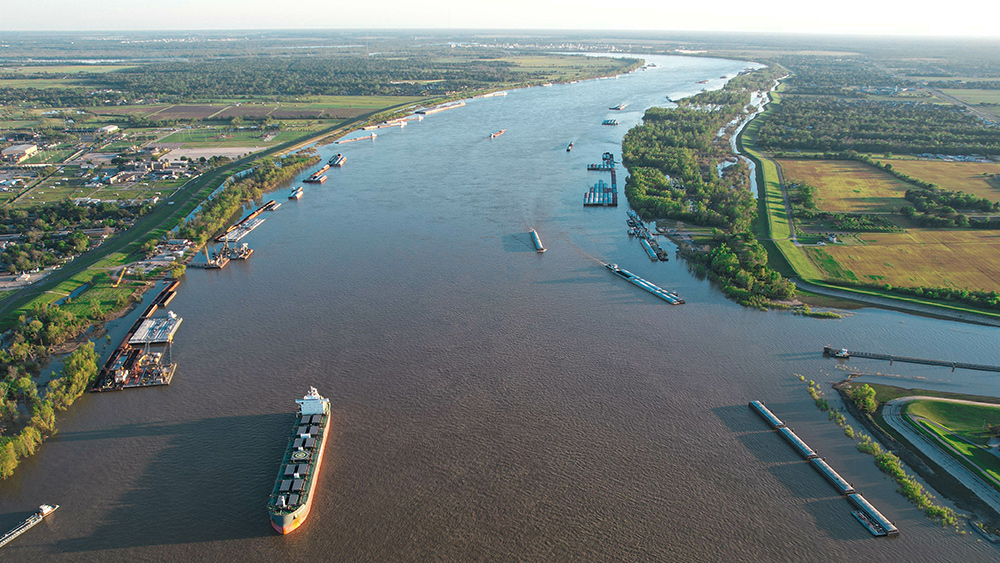Revealed: Nearly 100 potential PFAS-polluted sites in Pennsylvania, Ohio and West Virginia from fracking waste
12/23/2022 / By News Editors
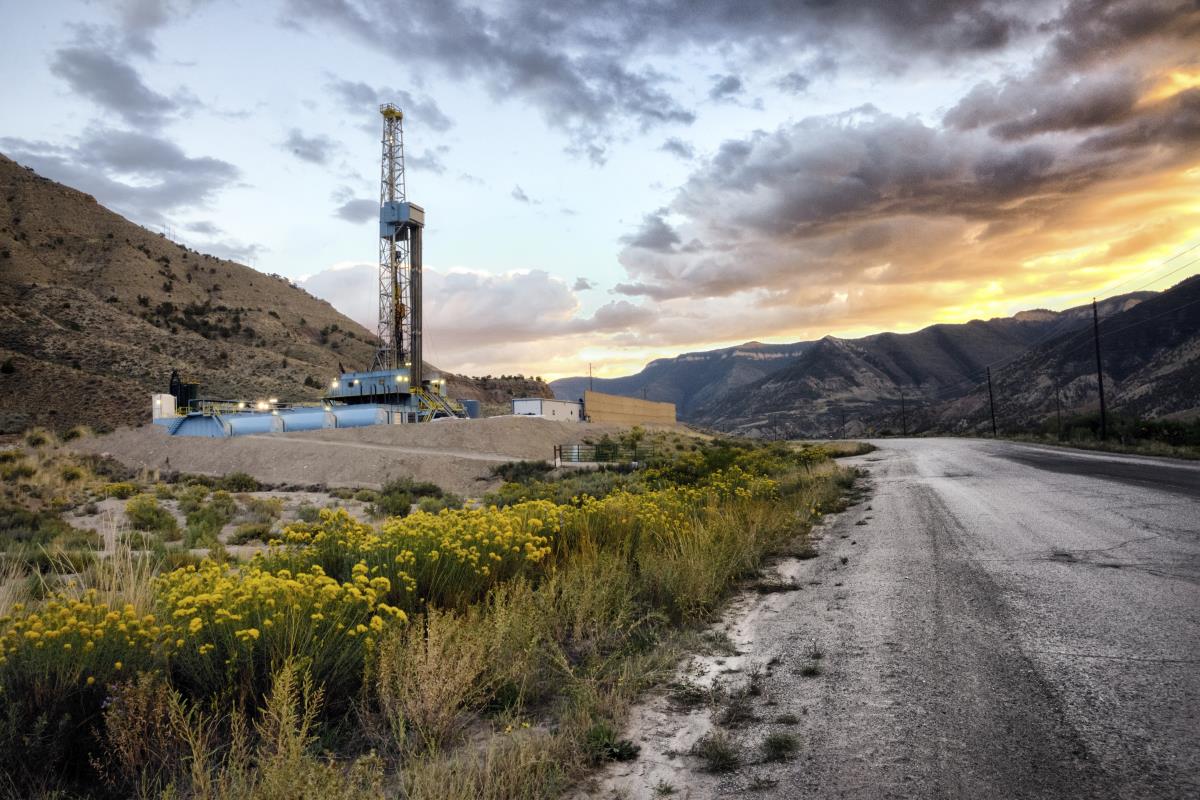
PITTSBURGH — Waste from fracking wells that used PFAS — commonly known as “forever chemicals” — has been dumped at dozens of sites across Pennsylvania, Ohio and West Virginia — all of which could face contamination of soil, groundwater and drinking water as a result.
(Article by Kristina Marusic republished from EHN.org)
PFAS (per- and polyfluoroalkyl substances) have been used in hydraulic fracturing and other types of oil and gas wells across the U.S. for at least a decade.
Exposure to the chemicals, which are also used to make various consumer products nonstick and waterproof, is linked to health problems including kidney and testicular cancer, liver and thyroid problems, reproductive problems, lowered vaccine efficacy in children and increased risk of birth defects, among others.
Regulatory loopholes and a lack of transparency make it impossible to know how extensively the chemicals have been used in oil and gas production.
In August, however, Environmental Health News (EHN), documented the first case of private drinking water contaminated with PFAS potentially linked to fracking wells, and in October EHN mapped the eight locations where operators have publicly disclosed the kind of PFAS they used in Pennsylvania fracking wells.
Now, a new map developed for EHN by FracTracker using public data reveals that waste generated at the eight Pennsylvania fracking wells with documented PFAS use has traveled to at least 97 additional sites for reuse and disposal.
Those eight wells generated more than 23 million gallons of liquid waste and 30,390 tons of solid waste between 2012 and 2022 so far.
“It’s unique that we’re able to trace this in Pennsylvania,” Matt Kelso, a manager of data & technology at FracTracker, who developed the map, told EHN. “Other states may tell you a little about the waste generated at well pads, but most don’t publicly report where it goes.”
Experts say many of these secondary disposal sites are also likely to be contaminated by PTFE (Polytetrafluoroethylene), commonly known as Teflon, which is one of more than 9,000 PFAS, and was reported as being used at all eight wells.
PFAS like PTFE (Teflon) are extremely water-repellent and are sometimes used in fracking fluid to make the chemical mixture more stable and to more efficiently flush oil and gas out of the ground at high pressure.
There’s also evidence that the chemicals are used during initial drilling and other phases of oil and gas extraction, but companies aren’t required to disclose them, so there’s no way of knowing how widespread the practice is.
“If there were PFAS in any of those waste products, it’s likely that it would have gotten into the environment in some of those locations,” Robert Delaney, a retired geologist and Superfund specialist who spent 30 years working for the Michigan Department of Environmental Quality (now called the Michigan Department of Environment, Great Lakes and Energy), told EHN.
Delaney was among the first to raise the alarm about widespread PFAS contamination in Michigan and spent more than a decade providing technical guidance to state and national groups addressing PFAS contamination.
“The odds are that just as there were spills at the well pads, there have been spills and leaks at these disposal sites,” Delaney said.
“All these places that accepted the waste didn’t know that they were dealing with PFAS. And the things you do to treat other chemicals doesn’t work on them…these chemicals never go away.”
Regulators won’t test for PFAS near wells — even ones that had spills
In October, EHN asked the Pennsylvania Department of Environmental Protection (DEP) whether the agency would test soil or groundwater for PTFE at the eight wells where public disclosures show the chemical has been used.
In its initial response, the agency stated that “absent a spill or release on the surface or below the surface, there is no reason to conclude that well site fluids (whether including PFAS compounds or not) would have reached nearby soils or drinking water.”
EHN pointed the department toward documentation of two spills on one of the eight well pads, the Paul Schlinksi 8H well in Donegal Township, Pennsylvania.
The first one, in 2017, and another in 2020 — then asked whether soil or groundwater testing would be performed at that site.
“Given the time period between the use of the PFAS chemicals and the releases, the small amount of the spills, that the spills were contained to the gravel of the well pad, and that they were remediated quickly, DEP does not have current plans to sample for PFAS at this location,” Pennsylvania Department of Environmental Protection spokesperson Jamar Thrasher told EHN.
He added that both spills consisted of “produced water,” which mainly consists of brine from underground formations and that they wouldn’t expect to find chemicals used in fracking fluid in produced water so long after the initial fracking phase, which happened in 2012.
Delaney thinks Pennsylvania regulators should at least test soil and water for PTFE at the eight well pads where the chemical was used, and also consider testing at the sites where waste from those wells has been disposed of.
“They should want to find out if PFAS is a problem in the well drilling business in their state,” he said.
“That’s a big business and it could impact a lot of aquifers. Since they know these chemicals have been used, following the precautionary thing to do would be to go out and check these areas to see if PFAS [are] getting into the environment this way.”
“Ridiculously small quantities can contaminate water way above what is safe for humans,” he added. “When we talk about PFAS contamination, it’s in parts per trillion. Less than one gallon of PFAS can contaminate a trillion gallons of drinking water to a level that’s unsafe for humans.”
There’s no legal limit for PFAS in drinking water at the federal level, but earlier this year the EPA announced new recommended health advisory limits for two of the most common PFAS: 0.004 parts per trillion for PFOA (Perfluorooctanoic acid) and 0.02 parts per trillion for PFOS (Perfluorooctane sulfonic acid).
Residents who live near the eight well pads where Teflon was used, or any of the sites where waste from those wells was disposed, can file a complaint with the Pennsylvania DEP to request testing of soil and groundwater for PTFE.
PFAS lawsuits on the horizon
EHN published an investigation in August that documented PFAS contamination in drinking water at the home of Bryan Latkanich, a Pennsylvania resident who formerly had two fracking wells on his property.
Latkanich has since filed a lawsuit against two fracking companies for allegedly contaminating his drinking water with PFAS and other toxic chemicals.
Latkanich and his son have experienced a slew of health problems since the wells went in more than a decade ago, including stomach problems, asthma attacks, rashes and eye irritation for both of them; and for Bryan, repeated hospitalization for kidney issues.
The Pennsylvania DEP tested his water repeatedly through the years, but never looked for PFAS, and concluded that the fracking wells weren’t to blame for any contamination.
The agency also conducted statewide PFAS sampling at locations it determined were likely contaminated in 2019, but didn’t include any oil and gas well sites — despite knowing the chemicals had been used at them.
“DEP [the department] isn’t looking for PFAS when they do these water tests because they don’t want to find them,” Latkanich told EHN.
Delaney said it’s not uncommon for regulatory agencies to resist looking for PFAS.
“In Michigan there was resistance to looking for the chemicals in the past, and now that we have, we’ve learned that it’s a huge problem,” he said. “This continual resistance to looking for PFAS is something the public has to speak out against.”
Several states, including New Jersey and California, along with cities or municipalities Massachusetts, Florida and South Dakota, are suing PFAS manufacturers like DuPont to recoup the costs of cleaning up drinking water contaminated by the chemicals.
There are currently no such lawsuits in Pennsylvania.
State regulators are working to establish standards for two of the most common PFAS in public drinking water, but those regulations won’t help people like Latkanich, who has a private water well — as do many residents in the rural parts of the state where fracking occurs.
In the absence of meaningful regulations, lawsuits may be the only recourse for people like Latkanich.
Thrasher said the state’s DEP is incorporating PFAS handling protocol into programs that address releases and spills at oil and gas wells, and said the agency will “raise issues relating to PFAS with industry as those developments occur.”
This summer, Colorado became the first state to ban the use of PFAS by the oil and gas industry. There’s been no move toward a similar ban in Pennsylvania.
“People need to be more aware of what their government is doing and not doing to protect them from these industrial chemicals,” Delany said.
“We still haven’t stopped producing or using PFAS even though we know they’re impacting humans adversely. This is a problem our children and grandchildren will continue to face in the future.”
Read more at: EHN.org
Submit a correction >>
Tagged Under:
big government, clean water, dangerous, drinking water, Ecology, environment, EPA, forever chemicals, fracking, fracking waste, national security, PFAS, poison, real investigations, tap water, toxic chemicals, toxins, water supply
This article may contain statements that reflect the opinion of the author
RECENT NEWS & ARTICLES
TapWater.News is a fact-based public education website published by Tap Water News Features, LLC.
All content copyright © 2018 by Tap Water News Features, LLC.
Contact Us with Tips or Corrections
All trademarks, registered trademarks and servicemarks mentioned on this site are the property of their respective owners.

